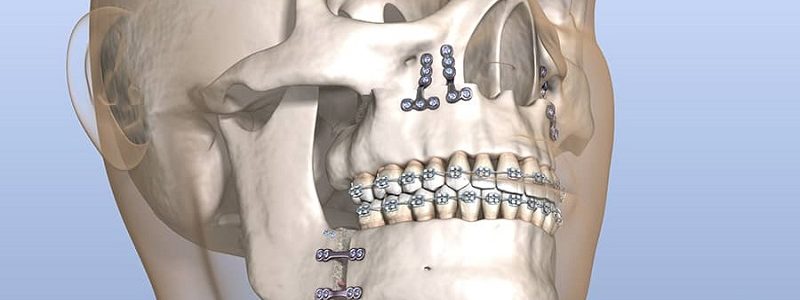A solution for better breathing | Isfahan nose surgeon _ Jaw surgeon of Isfahan
Sleep apnea is a common breathing disorder in which a person's breathing stops repeatedly and briefly during sleep.. These breathing interruptions can lead to decreased blood oxygen levels, sleep disturbances, daytime fatigue, increased risk of cardiovascular disease, and other health problems.. In some cases, orthognathic surgery can be used as a treatment solution for sleep apnea.
What is orthognathic surgery?
ЎІЎ±Ў™ўИЏѓўЖЎІЎ™џМЏ© surgery It is a type of mouth and jaw surgery that is used to correct jaw and teeth abnormalities. This surgery can involve relocating the upper jaw, lower jaw, or both. The purpose of orthognathic surgery is to improve jaw function, correct facial deformities, and improve the appearance of teeth.
The relationship between orthognathic surgery and sleep apnea:
In some people, sleep apnea is caused by structural abnormalities in the jaw and upper airway.. For example, a small or receding lower jaw can cause airway obstruction and interrupted breathing during sleep. Orthognathic surgery can solve this problem by moving the lower jaw forward and opening the airway.
Who are good candidates for orthognathic surgery for sleep apnea?
People with Sleep Apnea who have structural abnormalities in the jaw and upper airway, can be good candidates for orthognathic surgery. These people usually have the following symptoms:
- Frequent breathing interruptions during sleep
- Loud and continuous snoring
- Fatigue during the day
- Morning headache
- Concentration problems
- high blood pressure
- Cardiovascular problems
Before surgery, the otolaryngologist and maxillofacial surgeon evaluate the patient's condition completely.. This evaluation includes a physical examination, reviewing the patient's medical history, performing breathing tests such as polysomnogram, and taking radiological images of the jaw and teeth..
Benefits of orthognathic surgery for sleep apnea:
- Improving breathing during sleep and reducing breathing interruptions
- Reduce snoring
- Improve sleep quality
- Increase energy levels during the day
- Reducing the risk of cardiovascular diseases
- Improving the appearance of the jaw and teeth
Risks and complications of orthognathic surgery:
Like any other surgery, orthognathic surgery is associated with risks. These risks include the following:
- The infection
- Bleeding
- Nerve damage
- Breathing problems
- Numbness or tingling in the jaw and teeth area
Post-surgery care:
After surgery, the patient needs special care. These cares include taking prescribed medications, following a soft diet, taking care of the surgical site, and going to the doctor for periodic visits..
Conclusion:
Orthognathic surgery can be an effective treatment solution for sleep apnea in some people. However, this surgery is not for everyone and the benefits and risks should be fully considered before undergoing it.. If you suffer from sleep apnea and think that orthognathic surgery could help you, consult with an otolaryngologist and maxillofacial surgeon to see if this surgery is right for you..
Tip: This article is for informational purposes only and is not a substitute for consulting a medical professional. To diagnose and treat sleep apnea and to check the possibility of orthognathic surgery, you should see a specialist doctor.
Useful links:
Isfahan nose surgeon _ Jaw surgeon of Isfahan
Dr. Behnam Khorrami's page in the clinic 24 | Maxillofacial surgeon in Isfahan clinic 24 | Nose surgeon in Isfahan clinic 24
Dr. Behnam Khorrami, nose surgeon in Isfahan at Dr. Af | Maxillofacial surgeon in Isfahan at Dr. Af | Isfahan nose surgeon at Dr. Af

